I hope this issue of our newsletter finds you well. It’s hard to believe that it’s been over a year since the pandemic upended our routines and changed the ways that we work and interact with one another. The past year has been challenging, to say the least, but MSU’s research community has faced these challenges with determination and resilience. The important work of advancing the University’s research mission has continued, thanks in large part to your efforts and your embodiment of Spartans Will. Thank you for all that you have done and for what you continue to do to help research happen at MSU!
This issue of the SPA Newsletter provides information and updates on a diverse range of topics related to research administration. An article on the PI Award Portal gives a preview of a new tool, which will be introduced in the coming months, and an article on the Negotiation Module provides some tips for making an existing tool more useful. Updates related to NIH and NASA are also included. In addition, we have shared some information related to our continued efforts to improve our Essentials of Research Administration training series. A summary of our analysis of five years of survey response data is included, along with the addition of course levels to help participants customize their training based on their level of experience.
This issue also announces the recipients of the Spring 2021 Unit Research Administrator Spotlight Award. We are proud to sponsor this award and we are thankful for the opportunity to recognize the exceptional support provided by the recipients. While we congratulate the winners, we also acknowledge the important role that each research administrator plays in providing effective assistance for research administration. It truly is a team effort, and I recognize and appreciate the important work that you all do.
I hope you enjoy the Spring 2021 issue of our newsletter. For suggestions for future content or feedback on this issue, please contact Erin Schlicher, schlic11@osp.msu.edu or me, reighley@msu.edu. Author names have been included in each article for topic-specific questions. I extend my appreciation to the authors and contributors who made this newsletter possible.
Twila Fisher Reighley
Assistant Vice President for Research and Innovation


The Research Performance Progress Report (RPPR) for NIH grants is an important, and somewhat daunting task at times. Periodically, NIH provides updated guidance and clarification to assist with completing the RPPR. Below are a few recent updates to consider when completing your report, and some helpful reminders:
NEW!!!
- Included in the October 1, 2020 announcement, the Trainee Diversity Report is required with RPPRs, Interim Final RPPRs, and Final RPPRs electronically, using a new option that is now available in the xTrain and RPPR modules for federal fiscal year 2021. This is for T15, T32, T34, T35, T37, T42, T90, TL1, TU2, TL4, TU2, K12/KL2, R25, R38, R90, RL5, RL9 awards and can be found as part of guide notice - Requirement for Trainee Diversity Report to be Submitted Electronically for Institutional Research Training, Career Development, and Research Education Awards Beginning in Early FY 2021 (NOT-OD-20-178)
- If impacts from the COVID-19 pandemic have caused delays related to your research project, NIH has advised grantees to document these effects in the RPPR. We have identified Section F.2 as a valid location for this explanation.
- In the July 2019 NIH guidance related to ‘Other Support’ indicates that if other support is obtained after the initial NIH award period, from any source either through the institution or directly to senior/key personnel, the details must be disclosed in the annual RPPR (Section D.2.c).
- Effective May 25, 2021 supporting documentation is required for Other Support submissions that include foreign activities and resources. Recipients are required to submit copies of contracts, grants or any other agreement specific to senior/key personnel foreign appointments and/or employment with a foreign institution. The supporting documentation must be a part of the other support PDF. If the supporting documentation is in a language other than English, recipients must provide translated copies. More information on the new requirements can be found in NIH guide notice NOT-OD-21-073.
REMINDERS!!!
- eRA Commons IDs – When reporting effort on a NIH progress report, an eRA Commons ID is required for anyone who participates for at least one person month with the role of:
- Project Director/Principal Investigator (PD/PI) and any multiple-PD/PIs
- Undergraduate Student
- Graduate Student
- Postdoctoral Student
- Also required is a completed personal profile, including degree information, in eRA Commons for anyone with one of the above roles. If you have an upcoming progress report and believe you might need an ID please contact the CGA Awards Group as soon as possible (awards@cga.msu.edu). The RPPR cannot be submitted until all participants have the necessary IDs and complete profiles. Please see eRA Commons IDs for NIH Progress Reports for additional information. This can take some time, so do not delay!
- Final Progress Reports are not located under the RPPR tab in eRA Commons. They are located within the ‘Requires Closeout’ Link which is found under the ‘Status’ tab search results. The Final RPPR is listed in the ‘Closeout Submission Requirement’ column. The ‘Action’ column should include a link for ‘Process Final RPPR’. Guidance is provided by NIH at Submitting Your Final Research Performance Progress Report
Confused by any of this? You are likely not alone! If you need assistance, please contact the CGA Awards Group (awards@cga.msu.edu) or Cash Management Group (cashmanagement@cga.msu.edu) with any questions.
To provide Principal Investigators (PIs) with a high-level view of their sponsored programs, a PI Award Portal is being developed by Contract and Grant Administration. The PI Award Portal will display all funded and open awards (RC and RG accounts) in one dashboard, with the ability to drill into additional information of each award.

The PI Award Portal also incorporates graphs with summary information to help PIs view spending trends, identify potential financial issues, and see the distribution of spending within their sponsored program portfolio.
Depending on your role, you may also have access to a department or college view of the sponsored programs, including spending by grantor type and a list of all at-risk projects (i.e. hardship status, overdraft, etc.).
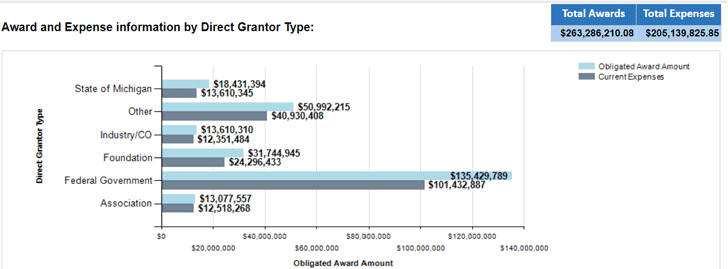
The PI Award Portal is expected to be released in Summer 2021, after initial testing and feedback. For more information, please contact Evonne Pedawi (pedawi@cga.msu.edu) or Kristy Smith (smith@cga.msu.edu).
by Kelly Bentley, Sue Ferris, and Nicol Springer, OSP
Looking for a great way to stay on top of your proposals and awards being reviewed? The negotiation module is an efficient time-saver and task management tool used by the Office of Sponsored Programs (OSP). At a glance, it can give you the status of: a proposal prior to submission, award negotiation and acceptance, and subawards created by OSP.
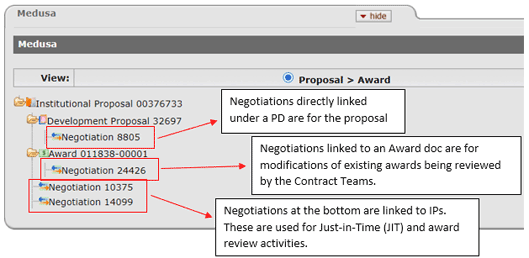
A fan favorite in KC is the Medusa tab: this links together all Proposal Development (PD), Institutional Proposal (IP) and Award documents to Negotiations created by the OSP Proposal and Contract Teams. This means you only have to remember one number to access all documents connected to it. There are two views in Medusa: one from proposal to award (the default) and another from award to proposal. At right is an example of what the Medusa tab might look like with the Proposal to Award view, with some explanations of each of the negotiations linked.

At any stage – proposal, JIT, award negotiation and creating a subaward – one of the most helpful benefits of the negotiation module is to see the individual assigned to work on it. This is found near the top, in the Negotiation panel.
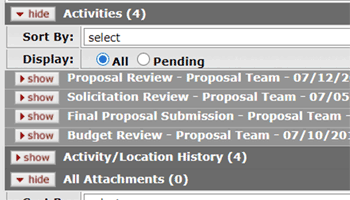
Within the proposal negotiation, you’ll also find dates of when the proposal notification was received, a solicitation was reviewed, when the budget was reviewed and approved, the dates of when the proposal was reviewed/signed (if applicable), and the dates of the final proposal submission. All of these can be found in the Activities panel of the negotiation.
Clicking "show" next to any of the activities will provide more information on their status.
When an award is received in OSP, a negotiation is created and assigned to a member of the Contract Teams. Compliance items including IRB and Export Control review are tracked in this log, as well as if/when communication with the Sponsor was initiated and completed. As with proposal negotiations, these are tracked in the Activities panel.
If you are looking for a quick update on a proposal, award review, or creating a subaward this is the way to go! KC is a time-saving tool intended to provide you with up to date, on-demand information. Rather than wondering who to ask, or waiting on an email response, take a glance at KC! To access the Negotiation Log, simply look up a PD or IP number, click on Medusa, and select the most recent Negotiation for current information.
For additional information see the following System Implementation Updates:
If you would like a walk-through or have questions, please do not hesitate to ask!
MSU requires a Project Based Financial Conflict of Interest (FCOI) disclosure to be completed for every sponsored research project. Until the PI, co-investigators, and key personnel have completed a Project Based FCOI, MSU is not able to sign the related agreement.
Did you know that completing a Project Based FCOI disclosure at the proposal stage can facilitate the award setup process once the project is funded? Waiting to complete the Project Based FCOI may cause a delay in signing the agreement and account setup. We strongly encourage completion of the FCOI as soon as the email requesting completion is received. For some sponsors (e.g. NIH and NSF), this FCOI disclosure must be completed before the proposal can be submitted.
A FCOI is identified when the COI Office determines that a Significant Financial Interest (SFI) is related to an individual’s MSU responsibilities. SFI includes not only an individual’s personal interests, but also the financial interests of their immediate family (spouse, domestic partner, dependent children, or other dependents) and with or by any legal entity that their family owns or controls.
It is important to note that any MSU agreement with an entity in which an MSU employee holds a financial interest, will require public notice and Board of Trustees (BoT) approval at a BoT meeting. Additionally, prior to any project agreements being approved, the entity will need BoT approval to do business with MSU (this is a one-time approval). The BoT does not meet monthly, which can cause further delay. Meeting dates are posted on the MSU Board of Trustees website.
If you are uncertain what and how to disclose, please refer to the Office of Regulatory Affairs Faculty Conflict of Interest webpage for details. This website provides instructions on what needs to be disclosed, how to log in to Kuali Coeus (KC), and how to disclose or update previous disclosures in KC. For your convenience, there is also a video with detailed instructions titled, Create Initial Disclosure in KC.
Please keep in mind that the Office of Sponsored Programs (OSP) verifies that Project Based FCOI disclosures have been completed. However, questions on what needs to be disclosed should be directed to the COI office, and questions on how to disclose should be directed to the KC Helpdesk.

SPRING 2021
RESEARCH ADMINISTRATOR
SPOTLIGHT AWARD
The offices of Sponsored Programs Administration (SPA), Office of Sponsored Programs (OSP), and Contract and Grant Administration (CGA) are honored to recognize excellence and exemplary service through the Research Administrator (RA) Spotlight Award. We received many strong nominations for excellent Research Administrators, and we are happy to announce that Kelly Feinberg and Courtney Peatross were selected by the Recommendation Panel as the Spring 2021 awardees. They will each be recognized with a plaque of accomplishment along with a small financial award as a token of our appreciation. Congratulations Kelly and Courtney, and thank you for playing an integral role in advancing MSU’s research mission! We truly appreciate your dedication and hard work.

Kelly has over seven years of service at MSU, providing pre-award and post-award support to researchers in the College of Communication Arts and Sciences. She assists faculty with federal and foundation submissions and investigates and solves new issues that arise during the research project life cycle. Kelly has developed and implemented several practices to streamline processes and improve research support within the college, and she actively looks for ways to support and engage her colleagues. She contributes to the improvement of research administration at MSU by serving as the Chair of the Sponsored Program Research Opportunities & University Training (SPROUT) group and as a member of the Sponsored Programs Advisory Committee (SPAC). She is known for her friendly and attentive demeanor, her expertise, and her willingness to take on new tasks or projects. One faculty member described Kelly as, “one of the most competent and helpful individuals” that he had worked with.
What do you enjoy most about your job here?
“The thing I love most about my job at MSU is the people. From the ComArtSci Office for Research team (Associate Dean for Research Eric Hunter, Tara Miller and Connie Benedict), to my OSP contact Sue Ferris, to my fellow ComArtSci staff (including Teresa Hagelberger) and faculty, I am very grateful for the opportunities I have to interact and work with wonderful people who are doing amazing things.”
What advice do you have for new research administrators?
“Like many things in life, having great relationships with the people around you will elevate your professional abilities. All of us were new at research administration at some point – so do not be afraid to find a mentor, ask questions, and find the resources that will help you achieve success in this rewarding career path.”

Courtney has been with MSU for six and a half years, and in her current position, she provides pre-award support to faculty in CANR. She also assists with the administration of two internal grant programs and distributes regular communications of funding opportunities to the CANR investigator network. Courtney is actively involved in the research administration community at MSU, representing CANR on the Sponsored Program Research Opportunities & University Training (SPROUT) committee and serving as a regular presenter for the Essentials of Research Administration (ERA) training series. She prioritizes customer service and strives to make the proposal submission process a positive experience for faculty.
What do you enjoy most about your job here?
“I truly enjoy the variety that my job provides as Research Administration is ever-changing, which allows me to tackle new challenges and constantly learn new things. It is very gratifying to be able to assist faculty with their research programs by working with them on their proposals and to see them receive an award. I am very lucky to work with incredibly kind and appreciative faculty and staff.”
What advice do you have for new research administrators?
“The Research Administration world is always changing and almost no two proposals are the same. My advice would be to stay organized, ask questions, remain flexible and develop relationships with your team and other Research Administration staff to successfully accomplish the end goal.”
by Evonne Pedawi, CGA

As in the past, this section is meant to update campus on sponsored program audits at MSU, as well as national trends in audit activity. Audits are an important part of sponsored programs as they provide an opportunity for sponsors to verify that MSU is complying with the award terms and conditions, and CGA continues to be the point of conduct for external audits.
Although we typically experience 30-35 external audits each year, many agencies were forced to postpone scheduled audits in 2020 due to the global COVID crisis. This resulted in significantly less audit activity last year. However, we have already received several notifications of audits for this calendar year, and we are preparing for a very busy summer and fall! Most audits are expected to be handled virtually, though we do have some auditors planning to be on campus later this year.
We expect a substantial audit focus in the next several years to be how MSU spent external funds during the COVID crisis, not only in our annual Single Audit, but also by federal agencies and other sponsors. A critical aspect of the audits will be on documented policies and procedures during this time. We anticipate focus on the several CARES Act awards received by MSU from the federal government, but also on spending of awards that existed prior to COVID. Please make sure to retain all information and communication related to your sponsored program and decisions made on spending during the COVID pandemic. Any questions can be sent to me at pedawi@cga.msu.edu or to Kristy Smith at smith@cga.msu.edu.
As of June 2020, NASA piloted a new "dual-anonymous peer review" (DAPR) program for the evaluation of proposals submitted to certain program elements. During the scientific evaluation of the proposal, reviewers are not informed of the identity of the PI and their team, and the PI doesn’t know the identity of the members on the review panel. Additional information, as well as frequently asked questions, may be found at https://science.nasa.gov/researchers/dual-anonymous-peer-review
Proposals to program elements using DAPR need to be compliant with the special instructions, and although NASA is cutting some slack, their website states that they “reserve the right to return without review proposals that are particularly egregious in terms of the identification of the proposing team.”
With the recent release of ROSES-2021, NASA is now expanding the DAPR program to the following program elements:
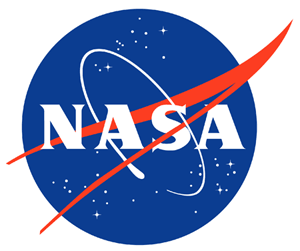
- A.15 Cryospheric Science
- B.4 Heliophysics Guest Investigator – Open
- A separate document describes how to prepare proposals for the Astrophysics Guest Investigator/Observer/Scientist Calls (D.5, D.6, D.9-D.11), which use the 2-phase proposal submission process.
- C.7 New Frontiers Data Analysis Program
- C.8 Lunar Data Analysis Program
- C.9 Mars Data Analysis Program
- C.10 Cassini Data Analysis Program
- C.11 Discovery Data Analysis Program
- D.2 Astrophysics Data Analysis Program
- D.4 Astrophysics Theory Program
- D.12 XRISM Guest Scientist Program
- F.3 Exoplanet Research Program
Please contact your applicable OSP Proposal Team if you have any questions or concerns regarding the DAPR program.
The Essentials of Research Administration program launched in 2010 with just 16 participants. Since then, we have issued over 1,000 Certifications and had over 4,000 course registrations in our program.
SPA/OSP/CGA wishes to extend a warm thank you to the research administrators at MSU who have provided their expertise and time presenting at ERA sessions, helping to develop new in-person, remote, or eLearning courses, or otherwise providing assistance to make this program possible.
Sponsored Programs Administration recently completed a review of the evaluation data for the ERA courses offered since 2015. We found that the ERA program is, well, essential to research administration at MSU. Below is a snapshot of some of the findings from our report.
We asked participants whether they found sessions engaging and the presenters knowledgeable:
Average Ratings by Year (Where 5 Is the Highest)
| Average Overall Session Rating |
Average Rating of Presenter Knowledge |
Average Rating of Presentation Style |
| 4.36 |
4.69 |
4.45 |
We asked if they found the information useful in their job duties, and 85% of respondents replied that they would use the information daily or occasionally:
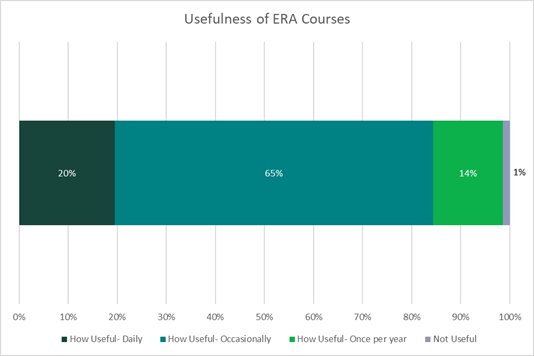
We also evaluated the open feedback (over 1,200 comments!) and 63% of all comments were coded as positive. A majority of the comments focused on course facilitation and course content.
Due to the COVID-19 Pandemic and MSU’s direction to work remotely, all our 2020 electives and 2021 courses thus far have been delivered virtually. We found that on average, ERA participants appreciate the opportunity and flexibility to continue learning while working remote. Though they missed the opportunities to connect with their peers.
2020 Zoom Course Delivery - Average Scores (Where 5 Is the Highest)
| I was able to log on easily/th> |
I was able to hear and understand the presenters |
I was able to use the chat functions |
I would participate in other ERA courses over Zoom |
| 4.49 |
4.61 |
4.11 |
4.61 |
Whether you attended just one session, or you’ve maintained certification since 2010, we are thankful for your continued participation and interest in the ERA Program. Thank you to the more than 110 MSU employees who have presented at an ERA course over the last 10 years.
Thank you for being a part of elevating research at MSU. Go Green!
Essentials of Research Administration (ERA) Series
SPA/OSP/CGA, in collaboration with SPROUT and an extensive network of MSU staff involved in pre-award, post-award and compliance functions of research administration, provide a certified training series for research administrators and other support staff with responsibilities for research proposals, grants, contracts, and pre- and post-award administration at MSU.
2021 Schedule: ERA electives are scheduled between May and December to aid in your professional development or pursuit of ERA Certification. These courses will take place virtually over Zoom. Please register in the Ability LMS at www.ora.msu.edu/training. To register for eLearning, please email Amanda Jones (ajjones@msu.edu) to be added to the course in D2L.
New in 2021: We have begun labeling courses with levels to help users find training opportunities that are appropriate for their level of experience. These levels are intended only as a guide and they will not prevent anyone from registering for a particular course. Each ERA course has been assigned one of the following levels:
- Entry Level—Course is appropriate for research administrators new to MSU or new to research administration.
- Intermediate—Course is recommended for those with at least 1 year of research administration experience or who have completed the Core courses.
- Advanced—Course is recommended for those with at least 2 years of research administration experience or with a specific interest or need to learn about the topic.
- All Audiences—Course is recommended for all levels of experience and interest in research administration. May cover topics, processes, or programs across various levels.
Training Videos:
SPA/OSP/CGA have created several training videos to assist MSU research faculty and administrators, located on our website and on Kaltura MediaSpace.
KC Training:
- KC-specific ERA Electives
- Job Aids & Videos – 20 job aids and 24 videos available on various KC topics including proposal and budget development, reporting, and general information.
- System Updates – System implementation updates provide tips, instructions, bug fixes, training opportunities, system outages and more.
At SPA/OSP/CGA, we strive to provide excellent customer service in all stages of research administration, from proposal development to the final closeout of an award. We continue to use client feedback surveys to solicit feedback on our proposal, award, and post-award processes. Ratings response details are available on the SPA Metrics section of our website (two-factor authentication required).
 We created our newsletter to share updates, best practices, and the latest on policies, compliance, sponsors, and more. SPA/OSP/CGA staff write articles and create content for each issue, but did you know that there are over 500 MSU employees who work in research administration?! We invite our readers from across the university to contribute to the newsletter. We value your perspectives and the depth and breadth of knowledge you bring to your team, unit, and college and welcome you to share it with the university.
We created our newsletter to share updates, best practices, and the latest on policies, compliance, sponsors, and more. SPA/OSP/CGA staff write articles and create content for each issue, but did you know that there are over 500 MSU employees who work in research administration?! We invite our readers from across the university to contribute to the newsletter. We value your perspectives and the depth and breadth of knowledge you bring to your team, unit, and college and welcome you to share it with the university.
Have you ever wanted to:
- Write an article or share a best practice with the MSU research administration community?
- Submit a question to be answered by an expert?
- Be the expert and teach others about a complex issue or scenario?
- Share your ideas or provide feedback on our newsletter?
Well now is your chance! Please send your ideas to Erin Schlicher to be considered for inclusion in a future newsletter.